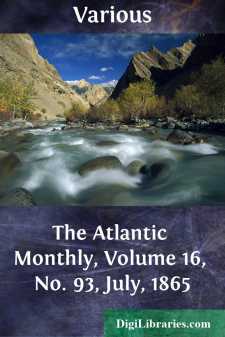Categories
- Antiques & Collectibles 13
- Architecture 36
- Art 48
- Bibles 22
- Biography & Autobiography 813
- Body, Mind & Spirit 142
- Business & Economics 28
- Children's Books 17
- Children's Fiction 14
- Computers 4
- Cooking 94
- Crafts & Hobbies 4
- Drama 346
- Education 46
- Family & Relationships 57
- Fiction 11829
- Games 19
- Gardening 17
- Health & Fitness 34
- History 1377
- House & Home 1
- Humor 147
- Juvenile Fiction 1873
- Juvenile Nonfiction 202
- Language Arts & Disciplines 88
- Law 16
- Literary Collections 686
- Literary Criticism 179
- Mathematics 13
- Medical 41
- Music 40
- Nature 179
- Non-Classifiable 1768
- Performing Arts 7
- Periodicals 1453
- Philosophy 64
- Photography 2
- Poetry 896
- Political Science 203
- Psychology 42
- Reference 154
- Religion 513
- Science 126
- Self-Help 84
- Social Science 81
- Sports & Recreation 34
- Study Aids 3
- Technology & Engineering 59
- Transportation 23
- Travel 463
- True Crime 29
Sort by:
In the course of the preparation of a synopsis of the North American terrestrial microtines by one of us (Cockrum), and the completion of a Master's thesis on the geographical variation of the red-backed mice of Wyoming by the other (Fitch) we had occasion to study the red-backed mice of the southern Rocky Mountain region (see figure 1). Results of these studies are the recognition of two...
more...
by:
Various
YOUNG MEN IN HISTORY. History is an imperfect record of nations and races, diverse in their position and capacities, but identical in nature and one in destiny. Viewed comprehensively, its individuals and events comprise the incidents of an uncompleted biography of man, a biography long, obscure, full of puzzling facts for thought to interpret, and more puzzling breaks for thought to bridge, but, on...
more...
by:
Owen Seaman
November 24, 1920. No sooner had the League of Nations met at Geneva than news came of the pending retirement of Mr. Charlie Chaplin. We never seem to be able to keep more than one Great Idea going at a time. "Have you read Mrs. Asquith's Book?" asks an evening paper advertisement. "What book?" may we ask. "In our generation," says Dean Inge, "there are no great...
more...
by:
Various
The Engraving on the annexed page is, perhaps, one of the greatest antiquarian treasures it has for some time been our good fortune to introduce to the readers of the MIRROR. It represents the original SOMERSET HOUSE, which derived its name from Edward Seymour, Duke of Somerset, maternal uncle to Edward VI., and Protector of the realm during most of the reign of that youthful sovereign. The time at...
more...
by:
Edward Eggleston
THE NEW SCHOLAR While the larger boys in the village school of Greenbank were having a game of “three old cat” before school-time, there appeared on the playground a strange boy, carrying two books, a slate, and an atlas under his arm. He was evidently from the country, for he wore a suit of brown jeans, or woollen homespun, made up in the natural color of the “black” sheep, as we call it. He...
more...
CHAPTER I SOS The venerable President of the Federation Aeronautique Internationale had been speaking. He paused now to look out over the sea of faces that filled the great hall in serried waves. He half turned that he might let his eyes pass over the massed company on the platform with him. The Stratosphere Control Board—and they had called in their representatives from the far corners of Earth to...
more...
by:
Various
VILLAS IN THE REGENT'S PARK. The villas of this district are among the most pleasing of all the architectural creations that serve to increase its picturesque beauty. Their structure is light and elegant, and very different from the brick and mortar monstrosities that line the southern outlets of London. The engravings on the annexed page represent two of a group seen to advantage from...
more...
âHugh, my lad! Hugh, run and tell Madge we have come back,â cried Uncle Donald, as he and I entered the house on our return, one summerâs evening, from a hunting excursion in search of deer or any other game we could come across, accompanied by three of our dogs, Whiskey, Pilot, and Muskymote. As he spoke, he unstrapped from his shoulders a heavy load of caribou meat. I, having a similar...
more...
by:
Alfred de Vigny
ALFRED DE VIGNY The reputation of Alfred de Vigny has endured extraordinary vicissitudes in France. First he was lauded as the precursor of French romantic poetry and stately prose; then he sank in semi-oblivion, became the curiosity of criticism, died in retirement, and was neglected for a long time, until the last ten years or so produced a marked revolution of taste in France. The supremacy of...
more...
by:
Maisie Ward
INTRODUCTION Chiefly Concerning Sources THE MATERIAL FOR this book falls roughly into two parts: spoken and written. Gilbert Chesterton was not an old man when he died and many of his friends and contemporaries have told me incidents and recalled sayings right back to his early boyhood. This part of the material has been unusually rich and copious so that I could get a clearer picture of the boy and...
more...











